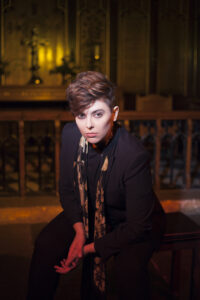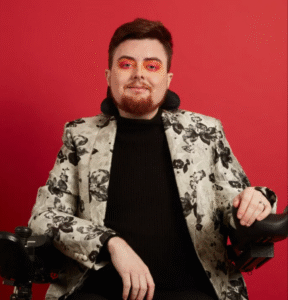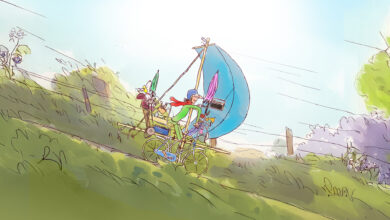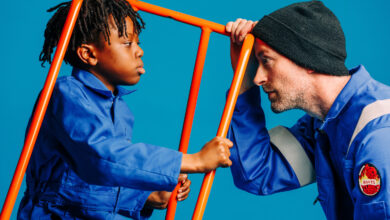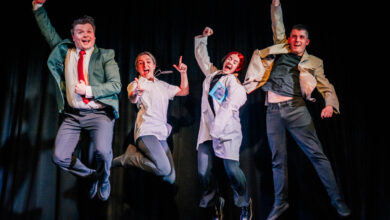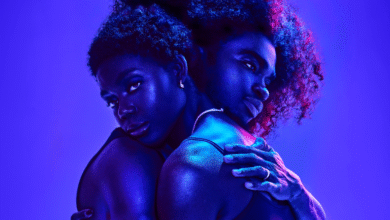
Jamie Hale and CN Lester talk Transpose: Subverse at Barbican Pit
This is a world where trans creatives are producing more and more amazing work – but there is still much to do to make their stories seen and voices heard in mainstream spaces. The Transpose Festival at the Barbican Pit has celebrated incredible trans artists for almost a decade and this year’s Transpose: Subverse is no different, with Artistic director CN Lester pulling out all the stops. A stunning line-up of talent includes director Jamie Hale, award-winning playwright, poet and founder of CRIPtic Arts (nominated for this year’s Sky Arts Award for Theatre). We wanted to hear more about what promises to be a thrilling collaboration so called them both up for a chat.
Hi there! Thanks so much for taking time to talk to us about Transpose: Subverse. CN, The festival has been running for about a decade now. Why did you set it up initially?
I was sick and tired of experiencing transphobic barriers in my own career, and watching friends and colleagues going through the same – so I thought I’d try to do something about it. Before moving Transpose to Barbican in 2016, I’d started Transpose as a (so I thought) one-off fundraising event in 2011 – but the audience and artists wanted more, and so did I – so I just kept growing it from there.
Do you feel like there is an expectation that trans work will be a particular thing? Perhaps flamboyant or in a drag style? And does the Festival help subvert that?
Absolutely, particularly when trans artists are brought onboard for Pride month only and sidelined the rest of the year. There’s a huge pressure – through commissioning and casting – for trans creatives to be ‘legible’ according to a distorted and limited idea of what ‘trans’ is. The whole ethos of Transpose is ‘no assumptions’ – not about the art forms included, or the content and methods artists use. Over the years, Transpose has platformed and supported over 100 trans artists, and in that multiplicity and variety there’s a real subversion of the idea that trans work could ever be one particular thing.
Have you seen much change in public responses to trans work over the years?
Yes and no! As an arts worker – a consultant and researcher as well as performer and theatre maker – I’ve seen some incredible improvements from some companies/organisations, who have gone out of their way to champion trans artists outside of the box, and shape and support a genuine, engaged public response to their works. I’ve also seen the continuation of media attacks against trans artists and their works, harmful working practices in the arts, lack of fair access, and stereotyping and tokenisation, all of which impacts on public engagement with our work. That being said, I do think that audiences are frequently more engaged, and more progressive, than certain critics and cis arts workers give them credit for. The Transpose audience has always been a complete mixture of trans and non-trans people – and their support has been everything.
How important is it to you that a venue like the Barbican so consistently supports this festival?
It’s hard to answer that question without hyperbole! Barbican is the largest performing arts centre of its kind in Europe – that they champion, and continue to champion, trans artists in the middle of a political and media-led backlash against us and our basic rights? It gives me hope, and the energy to keep pushing for a better industry for all of us.
Jamie, you’ve been connected with Transpose for a number of years. How does your background working in disability arts, which routinely and of necessity smashes creative barriers, tie in to trans artistry?
Both trans and disabled creatives are often coming from an outside perspective, either excluded or tokenised, and the initial CRIPtic event – from whence my career in disability arts began – was modelled on Transpose in terms of taking over the Pit Theatre to make work as a community. I am trying to bring the creative inventiveness, the problem-solving, the different lens, the care for inclusion that I have from surviving as both a trans person and as a disabled person in the world to how we make this work.
Can you tell us about some of the pieces you’re working on and how they bring diverse themes and genres into the mainstream space?
We’ve got five different sets of music, covering genres from contemporary vocal to opera to spoken word to singer-songwriter, and we’ve got people at the peaks of their careers delivering this work – some of the most talented and accomplished trans people in the country. Everyone is bringing their own expertise into this space (from vocal technique to quantum technology) – with new commissions sitting alongside existing works. CN Lester and I are developing an operatic and spoken word piece retelling the story of Frankenstein as a questioning of freedom – and it’s one of the most creatively exciting things I’ve ever had the opportunity to do. In this Subverse, we’re staking out our right to make work in the ways we want, work that doesn’t ask for permission or plead for respect, but holds itself confident in its existing excellence.
You’re not a guy to hold back when there’s a story that needs attention. Can we expect some spectacle and bold delivery amongst the offerings this year?
The heart of the spectacle of this show is definitely the music – the range of it is so broad and powerful, and it’s music that makes a statement and that stakes out its right to exist. The performers are so confident and assured that there’s absolutely that bold delivery. One of the things that excites me most is that we’re telling our own stories from a trans lens, but without any individual pressure to tell, or be seen to tell a ‘trans narrative’ beyond that which we have chosen to tell. This means our storytelling is big, it’s tender, and it’s un/bound from the work we’re always expected to present.
What access features might we expect to see included in the Festival, and how do they help enable important conversations to take place?
Every night of the show is relaxed and will be captioned; we have audio-description embedded into the show, and on the Saturday night we have BSL interpretation. These are the provisions in a more formal sense, but in a creative sense I also try to make sure that the experience is evoked in a multichannel way, that sound and light and movement all try to communicate these experiences together. This is about trying to make space for as many people as possible to experience the work, but it’s also about having the conversation through performance and staging this work that access can be, and is, a creative source and experience.
Thanks so much to CN and Jamie for reporting in on this exciting festival. CN Lester’s Transpose: Subverse takes over The Pit, Barbican from Wednesday 12 to Saturday 15 November.
All performances are Relaxed. Saturday 15 November will be BSL interpreted by Yusuf Gojikian.


